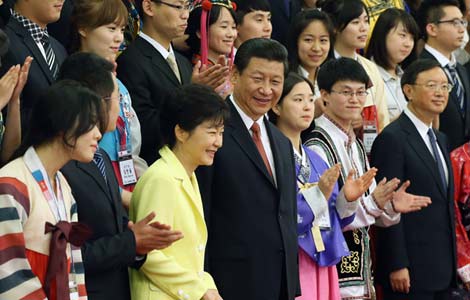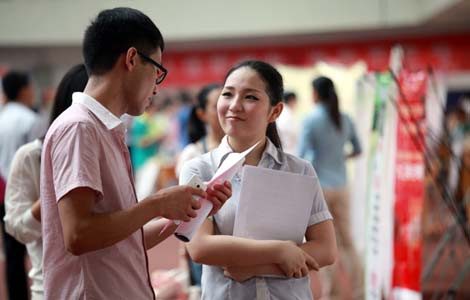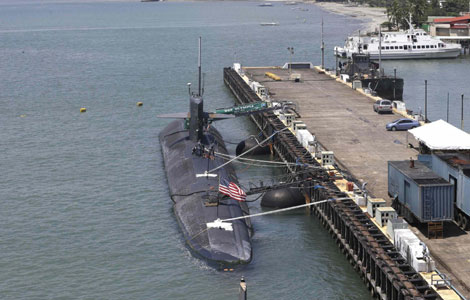China's top auditor warns of economic development risks
Updated: 2013-06-28 14:04
(Xinhua)
|
||||||||
BEIJING -- China's top auditor on Thursday warned of risks threatening economic development, calling for better management of finances and state-owned assets, as well as the sound implementation of macro-economic policies.
Liu Jiayi, auditor general of the National Audit Office (NAO), made the warning at an ongoing session of the Standing Committee of the National People's Congress (NPC), China's top legislature.
Soaring local debts
Local governments must improve their debt management, as local debts have increased sharply, Liu said.
Debts owed by 18 provincial-level governments and municipalities have risen sharply, hitting 3.85 trillion yuan ($626 billion) by the end of last year, according to a NAO report submitted to the NPC Standing Committee.
The debts have risen by 13 percent over the past two years, Liu said, adding that about 46 percent of the accumulated debt was owed after 2011.
Four provinces and eight provincial capitals have seen their debt rise at rates greater than 20 percent, with the highest rate coming in at 65 percent, he said.
Some governments have relied too much on land revenues and new borrowing to repay old debts, he said.
For example, about 45.4 billion yuan in new debt was created for the purpose of repaying debts incurred by the construction of highways in 2012, he said.
Loose implementation
Audits of 53 central state-owned enterprises (SOEs) showed that their competitiveness has significantly sharpened, but management still needs improvement.
Their rate of return on equity has dropped from 10.9 percent in 2010 to the current 6.4 percent. The decrease can be attributed both to general economic difficulties and poor management systems, according to the report.
The registration of 21 enterprises did not follow the Company Law. Forty-five enterprises have too many inner tiers, with the highest reaching 11 levels, Liu said.
More than 1,780 key decisions made by the SOEs failed to meet standards, causing losses or potential losses worth 4.56 billion yuan ($741 million).

 Visit aids 'trust-building process'
Visit aids 'trust-building process'
 King of Pop returns
King of Pop returns
 Crowds cheer Court decision on gay marriage
Crowds cheer Court decision on gay marriage
 Hiring index signals further job weakness
Hiring index signals further job weakness
 Dance becomes popular stress relief
Dance becomes popular stress relief
 Philippine, US start Naval exercise in S China Sea
Philippine, US start Naval exercise in S China Sea
 Supreme Court gay rights ruling celebrated across US
Supreme Court gay rights ruling celebrated across US
 Rudd returns as Australian PM after Gillard
Rudd returns as Australian PM after Gillard
Most Viewed
Editor's Picks

|

|

|

|

|

|
Today's Top News
816 elected in provincial leadership reshuffle
US Senate approves landmark immigration bill
US collects Internet data on citizens
More Americans see Snowden as patriot: Poll
Visit aids 'trust-building process'
Crowds cheer gay marriage decision
Industry enjoys profitable month
China's civil servants top 7 million
US Weekly

|

|







